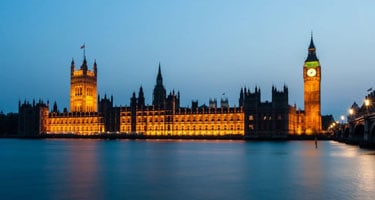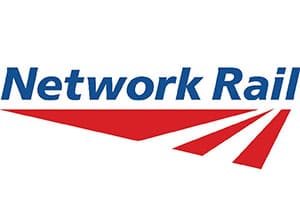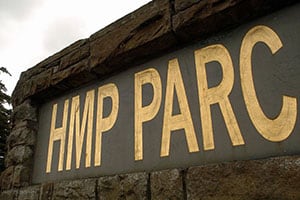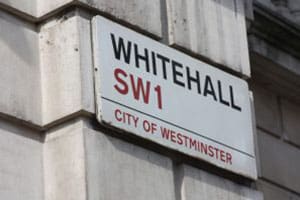 Government Tenders
Government Tenders
Government tenders are a fantastic opportunity for SMEs to win business. Servicing the government has many benefits which SMEs can take advantage of. The government has committed 33% of central government procurement spend to go to SMEs by 2022. This is a substantial figure that your company can get involved with. Listed below is an overview of what you need to be aware of when looking to win government tenders. Being aware of the entire process can give you an advantage over your competition. The total planned government expenditure for 2019/20 is £736.94 billion. The table below shows the top 10 sectors for spending. This shows some of the substantial opportunities available to SMEs if successful.
| Department | Planned Spend 2019/20 |
|---|---|
| Work and Pensions | £184,638m |
| Health and Social Care | £162,411m |
| Education | £98,764m |
| HM Revenue and Customs | £44,545m |
| Defence | £43,263m |
| Scotland | £35,272m |
| Transport | £25,521m |
| Northern Ireland | £21,165m |
| MHCLG – Local Government | £18,759m |
| Wales | £16,344m |
Legislation
Understanding the rules and regulations that come with government tenders is vital for your business if you want to make sure your tender is a viable option for the government. Understanding the legislation that cover your tender can give you a great guidance in finding tenders and tailoring your bid to suit government needs.
There are two pieces of legislation that cover all government tenders. They are The Public Contracts Regulations and the Utilities Contracts Regulations. These are both European Directives but are part of UK law. It is important to understand which act applies to your tender. The specifications for each act are listed below:
The Utilities Contracts Regulation 2016 covers the award of all contracts defined as a utility. The 2016 act defines a utility as:
- a “contracting authority”
- a public undertaking or
- an entity that carries out the relevant activity granted by “special and exclusive rights to”
Sections of the Act define the energy, water, transport, ports, airports and fuel extraction sectors as utilities. The Utilities Contracts Regulation applies to all contracts over certain thresholds. These thresholds are:
- £363,424- supplies or services contracts
- £4,551,413- works contracts
- £820,370- social and other services contracts that come under the “light touch regime” (previous Part B Services in 2006 Act, e.g. legal services)
When the fitting threshold is passed, the government framework must be advertised on the OJEU, part of the Europa website. Under the 2016 Act, the maximum length of time a framework can be is 8 years.
The Public Contracts Regulations 2015 apply in these scenarios:
- The contract meets the definition of a “public service contract”, “public supply contract” or “public works contract”; and
- the body procuring it is a “contracting authority”; and
- the value of the contract is over the relevant value threshold; and
- the procurement is commenced on or after 26 February 2015
The thresholds for this Act are as follows:
- Supply and services contracts (central government) £118,133
- Supply and services contracts (sub-central government) £181,302
- Works contracts (central and sub-central) £4,551,413
- Light Touch Regime contracts for services listed at Schedule 3 £615,278
The OJEU
Knowing where to find government tenders is extremely important for your SME in getting ahead of the competition and finding potential opportunities early. Finding government tenders early gives your company ample time to prepare a winning bid. You can also tailor your search to find the most fitting government tenders for you. Government tenders are advertised on the Official Journal of the European Union (OJEU). This is where all public sector contracts over a certain threshold are published. The thresholds are:
- £118,133 for Central Government
- £363,424 for Defence and Security
- £181,302 for other contracting authorities
- £65,630 for small Lots
These thresholds are updated every two years with the last update coming in January 2018. All lots that pass these thresholds fall under EU regulations and must abide by them. There are approximately 2,500 new OJEU notices advertised each week and currently over 10,000 tenders currently available in the UK. These government tenders are advertised on the OJEU as a notice in the form of an Invitation to Tender. Applications are made using the Tenders Electronic daily (TED). On the TED a useful tool for finding government tenders is to use Prior Information Notices. Although not an official ITT, it allows the government to let interested parties know that they are looking for certain services and discuss needs and requirements with potential suppliers. PINs can also potentially shorten the tendering period.
NHS tenders have a slightly different procedure under the EU regulations. Health service tenders fall under the EU public procurement Directive. With health tenders there is a higher threshold of £664,800. Any services that match or exceed this figure are required to be advertised on the OJEU to comply with key EU policies.
Government Frameworks
In addition to looking at the OJEU, which will only show current government tenders, companies should also look at government frameworks and the timetable for their publication. There are many different frameworks across the different departments and agencies, so unfortunately there is no one place to look. However a good place to start is Crown Commercial Services (CCS) which is part of the Cabinet Office. CCS manages a third of the UK government’s external expenditure on products and services through a series of frameworks. A framework is a competed supplier list of qualified companies. CCS provides regular updates on frameworks, end dates, companies on the list, and in some cases expenditure (by department/company). This is a rich source of information that should shape any organisations strategy for bidding for government tenders. It can help determine where to spend marketing and sales budgets and what products and services you should be showcasing on social media and websites. There are also separate frameworks for the NHS (such as the ProCure22 construction framework) and the MoD, so depending on the sector you operate in, it is important to stay up to date with the relevant frameworks.
SMEs are encourages to submit applications to be on government frameworks and there are targets for SME participation levels and spend on SMEs. Frameworks are usually advertised through the OJEU but as in all cases, responding to OJEU notices without preparation rarely gets the right result. Public bodies have choice of using the OJEU notice mechanism for purchasing directly from the market or using a framework. If they choose to use a framework then the procurement is quicker and they can limit the competition to a reduced list of qualified companies.
The CCS is responsible for establishing the legal framework for public sector procurement and heads the development of government tender policies. The most important and main policy requirement for government tenders is based on value for money. This is defined as “the best mix of quality and effectiveness for the least outlay over the period of use of the goods or services bought”. Therefore, a well formatted bid at a reasonable cost is effective in winning government tenders.
There are benefits for targeting government tenders. Providing goods or services in response to government tenders is beneficial to businesses because:
- the government will not go out of business owing suppliers’ money.
- Payment terms are generally more favourable on government tenders.
- Payments are better honoured with government tenders than in the private sector.
How The Bid Team can help
There have been several initiatives to simplify the process of public sector bidding however, the process is still complex with a number of bid stages with each with a detailed evaluation process. The Bid Team has been successfully bidding to the public sector since our formation. We have achieved wins for companies for large number of government tenders worth up to values in the billions. Our bid process is defined and well suited for government tenders and overview of our process can be found here. In addition we have produced a series of “How to” guides to further assist our clients win work through government tenders for example “How to position a bid“, “How to qualify a bid” and “How to write a bid answer“. These guides incorporate our approach with easy to use forms and templates. We also provide news on large government tenders on our news page.
If you are looking to bid to this sector, then The Bid Team can help provide bid management, bid writing, bid reviews as well as other services to help your organisation win government tenders. Please use the form below to contact us for a discussion on your bid.






















